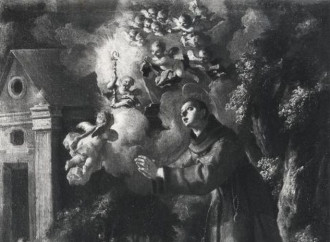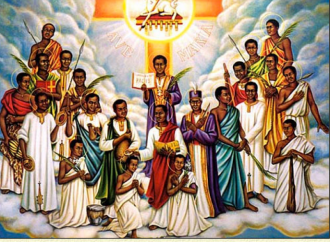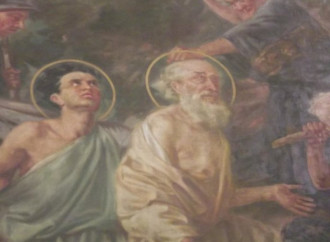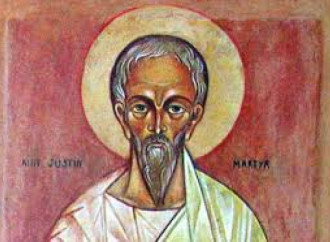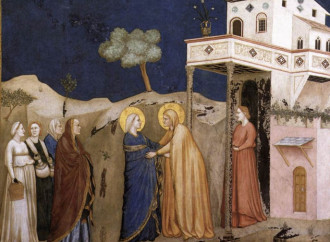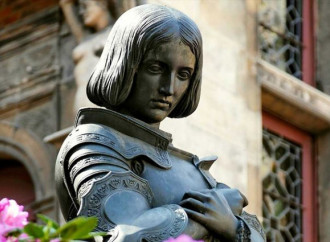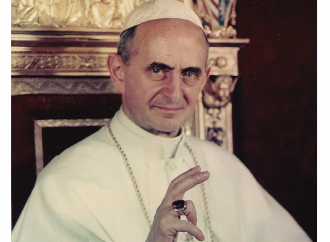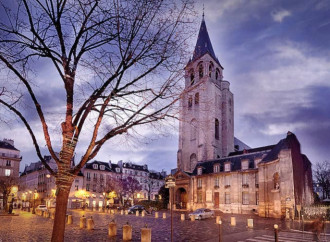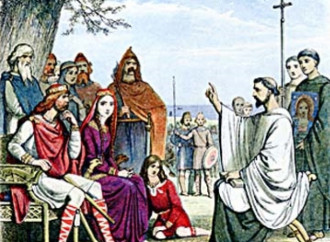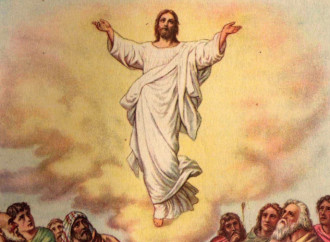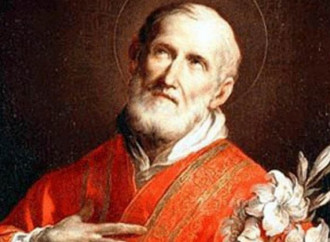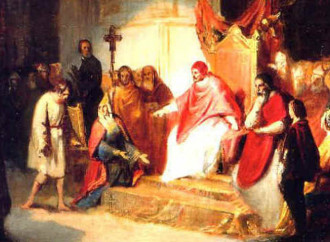Saint Francis Caracciolo
He is often depicted contemplating the Blessed Sacrament. Eucharistic adoration was in fact at the heart of his days and nights
Ugandan Holy Martyrs
Today the Church celebrates the memory of saint Charles Lwanga and other 21 Catholic martyrs killed on different days between 1885 and 1887 and proclaimed saints all together in October 1964 by Paul VI
Saints Marcellinus and Peter
In the early centuries of Christianity, Saints Marcellinus and Peter (†304), martyred during Diocletian's persecutions, enjoyed great popularity. We owe the oldest written record of their martyrdom to Saint Damasus (c. 305-384), the Pope who composed famous epigrams in honour of the martyrs and identified several sepulchres.
Saint Justin
The first philosopher to be proclaimed a saint lived his entire youth in a continuous search for truth. He moved from one philosophical school to another until his conversion to Christ, to which he gave witness tirelessly from then on, first with his teaching and then with his martyrdom.
Visitation of the Blessed Virgin Mary
St Francis de Sales extolled Mary’s solicitude towards Elizabeth: “Charity and humility are not perfect unless they pass from God to neighbour. It is not possible to love God whom we do not see, if we do not love the people we see. This part is fulfilled in the Visitation”.
Saint Joan of Arc
Within a year, a very young illiterate peasant girl lead France to win decisive battles against the English, who occupied its territory. The story of Saint Joan of Arc (1412-1431) is the most compelling demonstration that nothing is impossible to God, and reveals His tangible intervention in the history of man, through the humble who surrender themselves to His will.
Saint Paul VI
“The whole life of Paul VI was full of [...] adoration and veneration of the infinite mystery of God”, John Paul II said at the Angelus of 3 August 1980. And he added: “This is exactly how we see his figure in the light of all that he has done and taught; and we see this ever more clearly as time distances us from his earthly life and his ministry”.
Saint Germain of Paris
According to the hagiography written by his friend Venantius Fortunatus, Saint Germain of Paris (c. 496-576) risked not being born because of his mother's attempt to abort him.
Saint Augustine of Canterbury
He was prior of the monastery of St. Andrew al Celio in Rome, when Pope Gregory the Great entrusted him with the mission of re-evangelizing the ancient Britannia
Ascension of the Lord
“Men of Galilee, why do you stand looking up at the sky? This Jesus, who was taken up from you into heaven, will come in the same way as you saw Him go into heaven” (Acts 1:11).
Saint Philip Neri
“You wouldn’t want them to say that Philip is a saint, would you?” Saint Philip Neri (1515-1595) once replied to those who encouraged him to be a little more serious. Thanks to the mix of his proverbial humour and his charity, he won many souls over to God.
Saint Gregory VII
In that troubled period of the 11th century for Christianity, an extraordinary figure emerged: Saint Gregory VII (c. 1015-1085), whose name is linked to the “Gregorian Reform”. It was so called because Gregory was the greatest representative and supporter of the vast reformatory work already begun by his predecessors.
